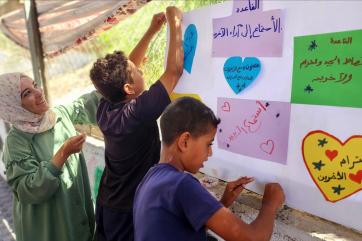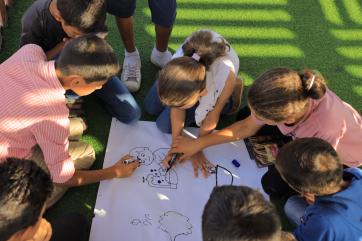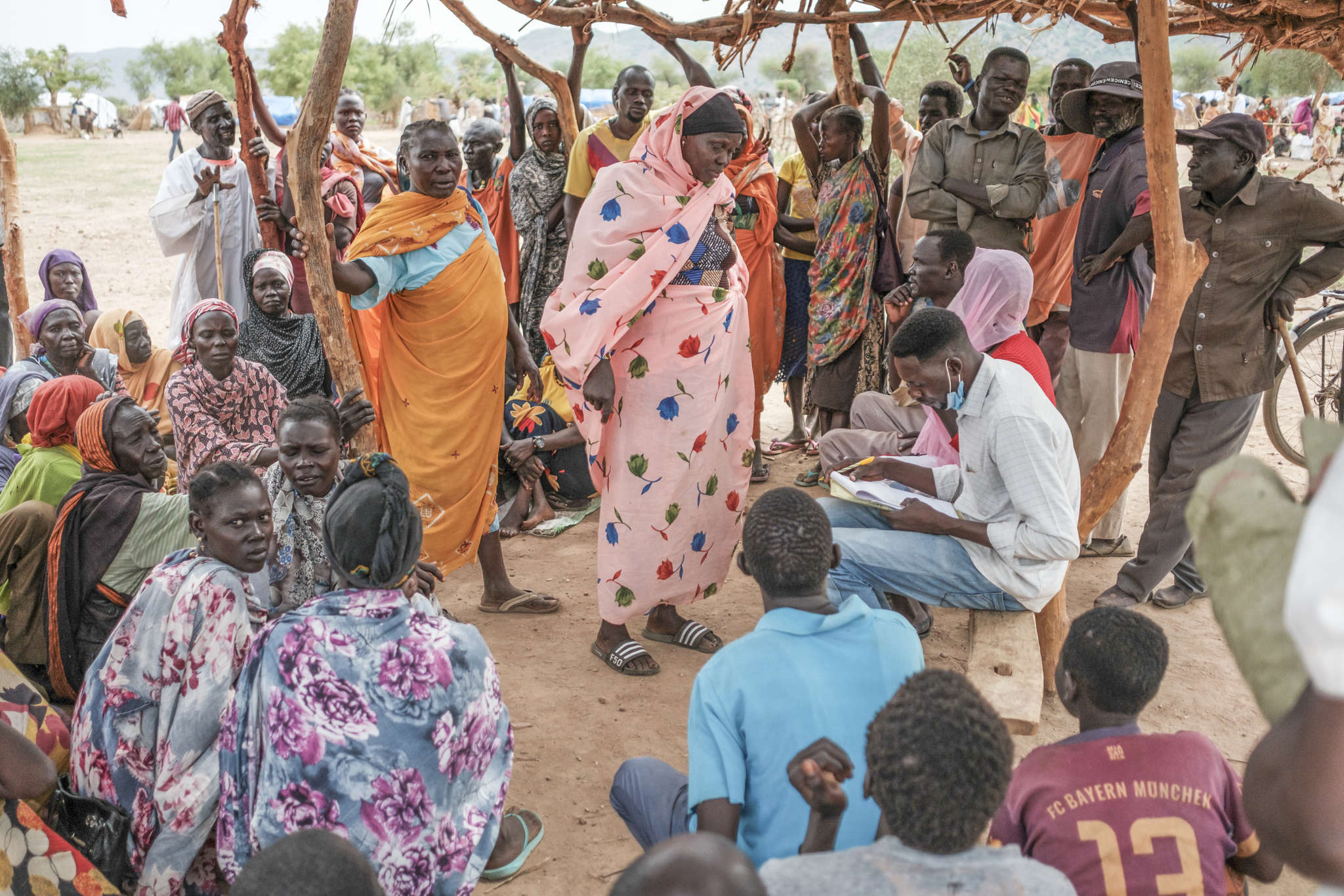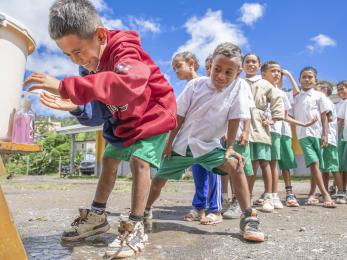When aid disappears: The human cost of foreign aid cuts
Millions lose access to vital Mercy Corps programs as US cuts aid

For decades, U.S. foreign aid has been a lifeline for millions of people across the globe. The U.S. administration's order to terminate nearly 10,000 foreign assistance programs abruptly severed that lifeline. Now, communities from Gaza to Sudan are facing the devastating human costs.
Mercy Corps teams are experiencing firsthand the impacts of these aid cuts on the communities we support, as more than half of our U.S. grant-funded programs have been terminated. We've spent the weeks gathering reports from staff and program participants around the world. What we're hearing is heartbreaking: children losing their only meals, communities suddenly without clean water, and life-saving health services vanishing overnight.
The immediate human cost is staggering.
A mother in Nigeria: “Please open up your [center]. My child and many others depend on it to survive.”
Mercy Corps' outpatient health centers in Northeast Nigeria provided vital nutrition and health services. Nearly 55,500 children under five as well as 11,500 pregnant women are living through the devastating consequences of displacement and instability due to the ongoing conflict in the region. The sudden closure of these centers led to immediate tragedy for a young mother of twins.
Yagana brought one of her twins to a health center to be treated for malnutrition. He was doing well, until the pause in aid forced the center to close. Four days later, he died. Now she fears for her second twin’s health. “Without the [nutrition] intervention, he keeps losing weight,” she says. “I don't have enough breast milk, and I can't afford other food.”
Mercy Corps Field Manager, Enock Elkana, warns the cuts have brought the region’s limited health infrastructure to its knees. A critical stabilization center managed by a Mercy Corps partner for children suffering from acute malnutrition has also closed. “These are cases between life and death,” he says. “And now, with the rising number of cases, there is nothing that partners can do, and there is nothing we can do.”
A young person in Gaza: “Then, without warning, it was gone. Now, I have nowhere to go.”
For Palestinian youth and their families, the 55 community centers opened by Mercy’s Corps’ Positive Youth Engagement program offered a haven from the brutal conflict—a place to learn, heal, and regain hope. More than 50,000 young people have lost access to education and skills development, in addition to 10,000 parents who will no longer be able to attend family support programs.


“The war took everything from me—my home, my school, my sense of safety,” says one youth participant. “I was too scared to even step outside. Then my mother took me to the psychosocial support point, and for the first time, I felt safe again. I made friends. I laughed. I learned.”
The abrupt closure of these centers has snatched away that fragile sense of security. “I started to believe that maybe things could be okay,” he says. “Then, without warning, it was gone. Now, I have nowhere to go. No school, and no safe space.”
The closing of this program amidst the devastation of the conflict leaves few avenues for education and community. Without it, Palestinian youth are now at an increased risk of coping with the trauma of war in detrimental ways, isolation, and negative impacts to their mental health and well-being. It also means parents have few options to help their children heal. “Seeing my children laugh, learn, and heal made me believe things could get better. Now, it's all gone,” says the mother of one child. “My children lost their only refuge, and I lost my only source of support.”

A team member in Sudan: “People will have to adopt more extreme coping strategies.”
Mercy Corps emergency programs in Sudan provide life-saving support to families caught in the world’s largest humanitarian crisis. More than 30 million people require urgent humanitarian assistance, more than 12 million are displaced, and communities in Northern Darfur are facing starvation. With Mercy Corps programs going unfunded by cancelled contracts, 150,000 people no longer have access to safe drinking water, and 40,000 people will lose food assistance.
Emmanuel Ufot, Mercy Corps Emergency Strategic Support Director in North Sudan, bluntly describes what happens in clinics treating patients for severe malnutrition when aid is suddenly stripped. “When funding is cut, especially from major donors who contribute 40-50% of aid, it is like turning off oxygen in a hospital,” he says. “The impact is immediate and devastating – people start dying the next second.”
While the situation is already dire, Ufot expects the crisis will escalate as people lose access to the limited cash assistance and nutrition resources they depended on to survive. “If the assistance is no longer available, people will have to adopt more extreme coping strategies,” he says. “They might sell whatever little assets they have left – perhaps a chicken or two – just to survive. The big question is, what will they do when those resources are gone?”
What’s next is up to all of us
Aid cuts couldn't come at a worse moment. Millions of people are displaced from their homes and some 305 million people around the world are in need of humanitarian assistance. Hunger, the search for safe shelter, health, and well-being needs can’t suddenly be paused or replaced – and urgent humanitarian needs can’t be ignored without devastating consequences.
This moment is a call to action for all of us to speak up, show up and to continue this vital humanitarian work. Despite these funding cuts, Mercy Corps continues to support communities in Nigeria, Palestine, and Sudan and we remain committed to meeting the ongoing urgent needs of families across the globe.
Our teams and partners are working diligently and effectively each day. We won’t stop helping communities around the world cope, adapt, and thrive in the face of disaster, violent conflict, and extreme hunger to provide desperately needed support for survival and to build a future of self-reliance.
Let’s rise together and continue to make a difference in the lives of those who need it most.
Vital programs have been halted, leaving millions of people without critical aid. Rush support to families today.


